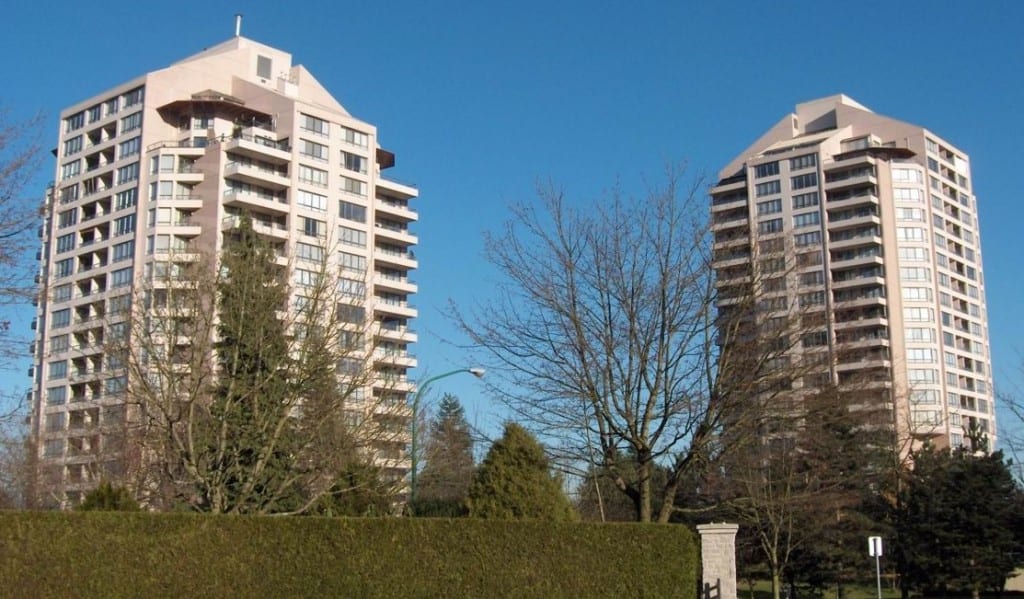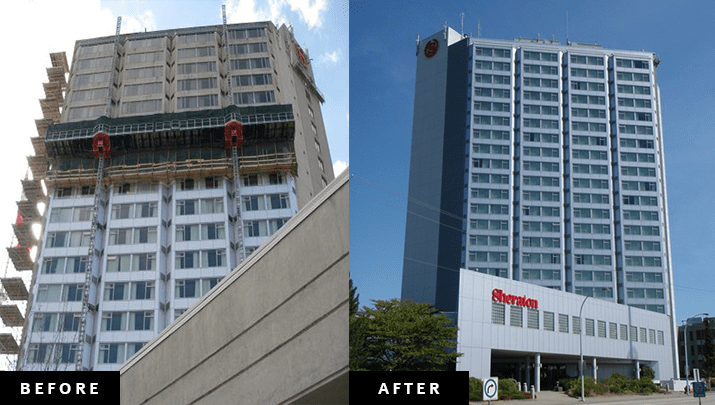When it comes to deciding which construction approach to take for a building renewal or rehabilitation project, the traditional method is often the first that comes to mind. A general contractor is hired through a competitive bid process, with the contract being awarded to the lowest qualified bidder, then through the bid process, the selected contractor chooses the trade contractors and suppliers they will work with, assuming the responsibility of project oversight. General contractors provide owners with a bid price of the project, including the cost of trade contractors’ rates.
An alternative; however, is the construction management (CM) approach. In this scenario, a construction project manager is hired to act as the owner’s representative throughout the entire construction process, offering support that ranges from coordination of the initial bidding process to on-site supervision and construction schedule management; cost control and cash flow projections through to field review and project completion and hand-off. Well known within the construction industry and suitable for all types of building enclosure rehabilitation projects, the construction management approach allows owners to know exactly what they are paying for through separate contracts with the construction manager and the trade contractors with payment based on fixed fees.
While both can be effective, different projects are better suited to different approaches, and multiple factors can impact which route an owner takes. The following are some guiding points to help determine if the construction management approach is right for you.
You’d like to have more control over the project
Between hiring a construction manager and a general contractor, there is a major difference in control and transparency.
In the construction management approach, owners work directly with the construction manager who acts on the best interests of the owners throughout the entire project. The construction manager works on your behalf to competitively bid the components of the job, making recommendations on trade contractors to ensure the project team includes only the highest quality tradespeople while also seeking out competitive pricing. By hiring trade contractors through separate contracts rather than a packaged deal under a general contractor, the construction manager has direct access to and power over all aspects of the project. This means, if things aren’t moving according to schedule or work isn’t being done at the level of quality it should be, your construction manager can step in and get things back on track. In addition to support from your construction manager, a superintendent is on site at all times during the construction phase to coordinate and supervise the work of trade contractors on the behalf of the owner, providing an elevated level of oversight to ensure the work is done properly and on schedule.
The scope of your project involves more than one or two items
There is a common misconception that the construction management approach is only used for massive projects with complex parts, like high-rise buildings. Although such buildings are ideally suited for this approach, a 20-unit wood frame apartment in need of roofing and balcony rehabilitations can be equally suited.
In the past, RDH has been the construction manager for projects ranging from high-rise complexes with multiple buildings to smaller low-rise residential and commercial buildings. La Mirage, for example, was a large project involving the building enclosure rehabilitation of two high-rise towers. Both towers were successfully rehabilitated simultaneously with a superintendent on site for each building, saving time and cutting costs. In contrast, Augustine Gardens was a smaller project involving a residential complex with three low-rise wood frame buildings. We were originally retained to complete a condition assessment, but after discussions with the owners, we were brought on to lead their rehabilitation project using a construction management approach. The transition was made simple for the owners, as our engineers, already familiar with the project, were able to bring our construction management team up to speed on the current state of their building. Both projects had very different scopes of work, but each benefited from the construction management approach.
Remember too that the construction management approach does not require a project to undergo a full rehabilitation every time. Space, a high-rise condominium building in Vancouver, BC, needed significant enclosure repairs, but the repairs could be managed without a complete enclosure replacement. RDH worked closely with the owners to develop a comprehensive maintenance and renewals program to maximize the life of the existing assemblies of the tower. Because we were involved early on in the process, we were able to come up with a strategy that fit the needs and budget desired by the owners.
You have a strict budget
Another major benefit of the construction management approach is the fixed fee structure it uses. Construction managers are able make accurate cost estimates of the project during the design phase and can provide input on ways to improve value while keeping the budget in check. The owners receive formal construction cost reports and have full access to budget details so that there are fewer surprises along the way; the process is entirely transparent. As an added bonus, if the project ends up coming in below the estimated budget, the savings are given directly back to the owner.
Since its inception in 1997, RDH has managed the rehabilitation and repairs of more than 1000 different buildings across North America. Each project has contributed to our collective experience and allowed us to track costing data that we use as a knowledge base for new projects that come our way. We refer to this in-house database to provide accurate budgets for pending work, allowing owners to have confidence that their project will stay within budget.
Your timeline is essential
Time is of the essence, and projects that go over their estimated schedules end up costing owners money. This is why planning ahead is a key part of the construction management approach. Because the construction management approach allows for early input during the design phase, potential issues that would slow construction or eat up budget can be uncovered and resolved before construction even begins. Once construction does begin, the site superintendent is present to make sure construction sticks to that plan, and that trade contractors are completing their tasks on time.
Remember that in the traditional approach, general contractors are not brought onto the project until the design phase has been completed. Therefore, if change orders are needed, they will slow project progress and can tack on some major costs.
The Sheraton Guildford Hotel in Surrey, BC was a project that had both a strict timeline and schedule. The hotel needed a rehabilitation to replace the existing cladding, but wanted to stay open during construction. As construction managers, RDH was involved early in the rehabilitation design phase and designed custom mast climbers that would cover a fraction of the building exterior. The mast climbers covered the windows of only two consecutive floors, and moved up by one floor every week allowing the hotel to allocate their room vacancies appropriately. This solution minimized disruption to hotel activities and the owners reported no net loss of revenue during the rehabilitation process.
Conclusion
In conclusion, while there’s no right or wrong way to approach a project, it’s important to understand the different approaches available. Ultimately, it is up to the owners to decide which approach best suits their project needs and choose a team they trust to get the work done right.
Here at RDH, we have almost 20 years of experience working on construction management projects. Our diverse team of experts including engineers, architects, and technologists allows for clear communication and a strong capacity for finding innovative solutions. Our superintendents and project managers are seasoned professionals with many coming from backgrounds in construction and general contracting, and bringing with them a solid track record and reputation for success.
Construction management is an elevated service that can be added along with our contract administration and project management services. Contact us to find out how RDH’s construction management team can help make your project a success.




